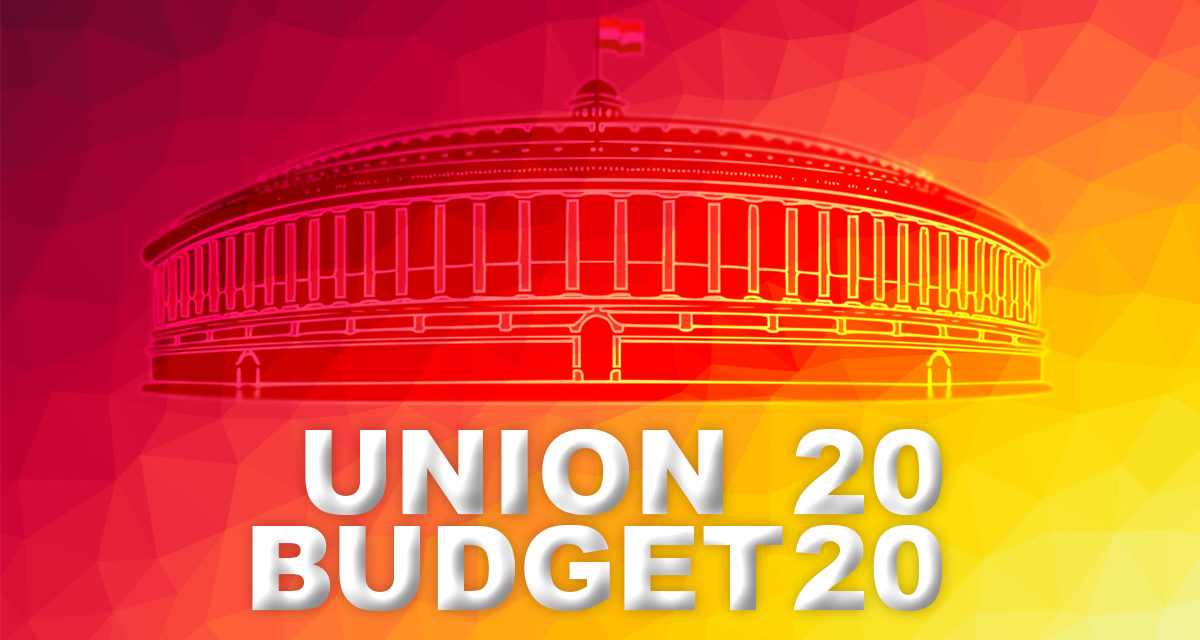What You Need To Know About Budget -2020
-
14 Feb 2023
Following are the major & important amendments proposed by the Hon’le Finance Minister in her budget presented on 1st February 2020:
1. Rates of Income tax
The Finance Minister has given option for two schemes of rates of taxation and assesse is free to choose any one of the following schemes:


*Conditions:
A Deduction u/ch VI-A not to be claimed:
In case where lower rates of taxation are opted (i.e. new proposed scheme), deduction under chapter VI-A shall not be allowed. To elaborate, no deduction u/s 80C (Investments in PPF, LIC, NSC etc.), u/s 80D (Medi-claim), u/s 80E (Interest on Education loan), u/s 80G (Donation), u/s 80U (Disability deduction), u/s 80GGA & u/s 80GGC (donation to political parties) etc. are not allowed to be claimed. However the only deduction that shall be allowed are, u/s 80CCD (National Pension System upto Rs. 50,000/-) and u/s 80 JJA (Deduction in respect of employment of new employees from business income). Further a salaried employee would not be able to claim deduction of leave travel allowance, House rent allowance, Standard deduction or other exemption for allowances and perquisites. Also a business assesse would not be able to set off brought forward loss and unabsorbed depreciation.
B Further conditions:
An Individual or HUF having Business Income would be able to exercise the option once and shall be valid for all subsequent years. This option can be withdrawn only once for a previous year thereafter he shall never be able to exercise option under this section. An Individual or HUF having no Business Income shall be able to exercise this option in every previous year.
2 Residential Status :
An Individual shall be treated as resident if he has been in India for a period of 120 days or more (earlier it was stay of 182 days or more in India) in a year or has been in India for a period of 365 days or more within 4 years preceding that year.
3 Due Dates for filing Return of Income:
Certain changes have been proposed in respect of due dates for filing of Return of Income.
|
4 Dividend Distribution Tax:
According to the proposed amendment, Companies would no longer be required to pay Dividend Distribution Tax (DDT) from now onwards. However, Dividend shall be taxed in the hands of recipient of Dividend at the applicable rates of Income tax.
5 Audit of Books of Accounts:
It is proposed to raise limit of turnover for the purpose of getting books of accounts audited u/s 44AB from Rs. 1 crore to Rs. 5 crore. However, the increase in limit of audit turnover is applicable only subject to following conditions:
(i) Aggregate of sales / turnover or gross receipts in cash does not exceed 5% of total sales/turnover or receipts during the financial year
AND
(ii) Aggregate of expenditure in cash does not exceed 5% of total expenditure.
6 Cost of Acquisition for Long term capital gain:
In respect of asset acquired before 1st April 2001, the Fair market value as at 01-04-2001 shall not exceed the stamp value as on 01-04-2001. As such, an assessee would not be able to claim Fair market value in excess of Stamp duty value limiting thereby the benefit of Indexation.
7 Lower TDS on fees for Technical Services:
Under the amended proposal TDS is required to be deducted at 2% instead of 10% on fees for technical services other than professional services.
8 TDS on E-commerce transactions:
Under this proposal, a new section 194-O is proposed to be inserted where, TDS @ 1% would be required to be deducted from the gross amount of sales or services or both payable by e-commerce operator (owner of the e-commerce platform) to e-commerce participant (who uses the e-commerce platform for providing services or selling goods). However no TDS would be made in case of Individual or HUF if gross amount of sales or services does not exceed Rs. 5,00,000/- AND the individual or HUF provides PAN / Aadhar to the e-commerce operator.
9 Vivad Se Vikas Scheme:
According to us, this is the major highlight of this Budget. This government has taken many steps in past few years to reduce the tax litigations. The Sabka Vishwas scheme resulted into settling over 1,89,000 cases.
As of now, there are almost 4,83,000 direct tax cases pending in various appellate forums i.e. Commissioner (Appeals), ITAT, High Court and Supreme Court. Under the "Vivad Se Vikas" scheme, a tax payer would be required to pay only the amount of disputed taxes and will get complete waiver of interest and penalty portion, provided that the Taxpayer pays the tax amount by 31st March, 2020. Those who avail this scheme after 31st March, 2020 will have to pay a certain additional amount. The scheme will remain open till 30th June, 2020.
Taxpayers in whose cases appeals are pending at any level can avail benefit from this scheme.
Authored by-
Shaishav D. Mehta, FCA
(E) shaishav@sdmca.in



